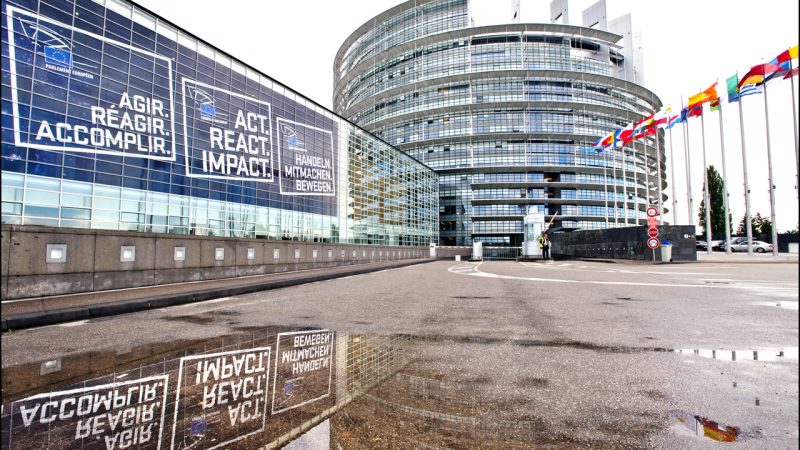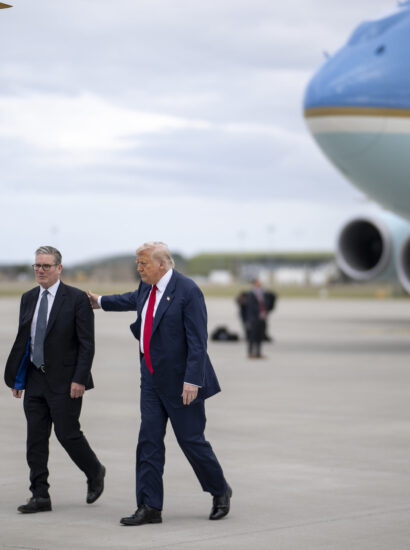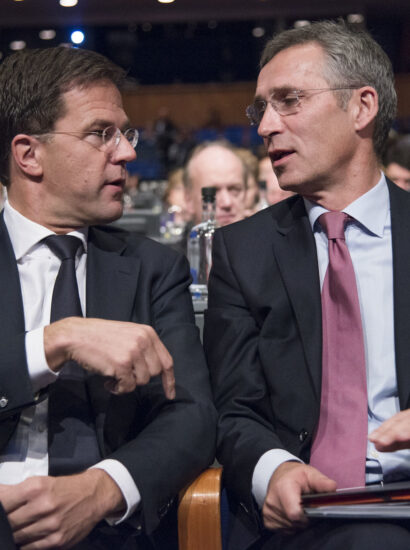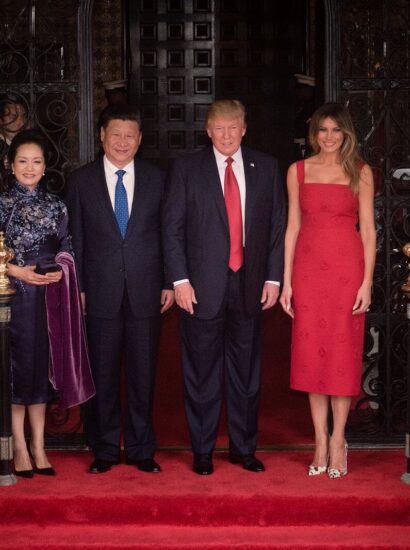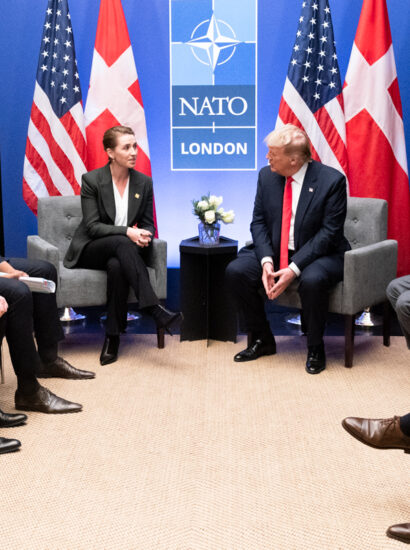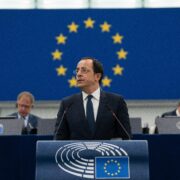In two or three months, the European Union will enter campaign mode and begin the process of six months or so leading up to the next five-year term after the renewal. However, the controversial players on the outside world will not sit idly by and are likely to continue to test Europe’s resilience in 2024. 2024 will also be a particularly challenging year for Europe because it will have to manage internal and external challenges simultaneously. The latter, moreover, with the institutional architecture that is so crucial to the functioning of the EU operating in technical paralysis for much of the year.
2024 in the EU: Elections with High Political Stakes
2024 will be a super-election year for the whole world. Citizens in 72 countries around the world will go to the polls to vote for their legislatures. Between 6 and 9 June, pan-European elections will also be held in the 27 EU Member States to elect the European Parliament for the next five years, from 705 to 721 members. But the stakes are even higher, as the outcome of the EP elections will have an impact on the new European Commission and its leader, as well as on other important appointments such as the new President of the European Council, who will take office on 1 December, and the EU High Representative for Foreign Affairs and Security Policy.
The European Council (the leaders of the 27 EU Member States) will decide on the key positions mentioned above in a package, taking into account the results of the elections.

Informal Meeting of EU Ministers responsible for Urban Matters in 2016 (Photo: Martijn Beekman / Rijksoverheid / EU2016 NL / Wikimedia Commons)
Already in the last pan-European elections in 2019, the biggest stakes were whether the series of crises that have plagued the EU would be able to be exploited by populist Eurosceptic forces, mainly from the radical right, to break the power of the current democratic and pro-integration centre. It remains to be seen how much of a lead they will make, but if the polls are to be believed, Identity and Democracy (ID), which brings together far-right parties, could become the third strongest force behind the Liberals, the centre-right European People’s Party and the centre-left Socialists and Democrats. Closely followed by the European Conservatives and Reformists (ECR), which includes Italian Prime Minister Giorgia Meloni’s party, the Polish Law and Justice (PiS) and probably also Hungarian Fidesz.
This means that the centre of the parliament, which is based on a coalition of the People’s Party, the Socialists, the Liberals and the Greens, will lose its current majority of almost two thirds, although it may still retain its absolute majority.
The Year of the Turn?
The shift in the balance of power could affect not only the functioning of the European Parliament, but also the EU as a whole. A strong conservative, Eurosceptic bloc could put the spoke in the wheel politically and legislatively, blocking the adoption of important climate and environmental legislation and deeper integration in general. On rule of law issues, too, the European Parliament’s lobbying capacity could easily be weakened, as it has managed to corner Hungarian Prime Minister Viktor Orbán’s illiberal government over the past five years by systematically pressuring the European Commission.

Hungarian Prime Minister Viktor Orban in 2017 (Photo: Annika Haas / EU2017EE / Flickr.com)
It is presumably this very capacity of the EP that the Hungarian prime minister hopes to curtail in the forthcoming European elections, as he has invested a lot of political capital, energy and Hungarian taxpayers’ money over the past year or two in turning the European status quo around. The change Orbán hopes for would start in the European Parliament, continue in elections in other member states, as in the Netherlands and Slovakia, and be crowned by the return of Donald Trump.
The consequences of such a risky scenario would be far-reaching, with a collapse of Western support for Ukraine or a questioning of the future of NATO.
This is of course only one of the possibilities, and it is far from the most likely. However, the EU has no choice but to continue consistently on the path it has been forced to follow in the current political cycle, which is essentially about defending its own political, economic and social model and even its territory in the future. Open strategic autonomy, reducing or eliminating dependence on Russia, China and other countries for strategic raw materials and investments, is an integral part of this awakening. Or developing its own defence capabilities, but also taking the lead, if you like, in the new industrial revolution based on clean technologies, and ensuring competitiveness.
The Belgian Presidency of the Council, in office since 1 January, will therefore have to carry out a series of legislative tasks with the help of the outgoing EP in the two and a half to three months remaining before the campaign break.
These include the final adoption of legislation on the Green Deal, the Clean Industrial Technology Plan, the digital switchover, economic governance (Stability and Growth Pact) and migration.
Focus on Ukraine and the Enlargement Process
The year 2024 will also be a key year for further EU enlargement, as the accession of new members in the Western Balkans and to the east of the current EU has taken on a new meaning and strategic purpose in the new, much more hostile geopolitical environment.
The first task to be tackled will be on the table of the EU27 Heads of State and Government on 1 February, when they are due to decide on financial support for Ukraine for the next four years, a package of €50 billion.
Only the Hungarian prime minister is standing in the way of an agreement, but it is really a question of whether a solution will be found within the EU27 or EU26 framework.
The next important fork in the road will be in March, when the European Council (EU27 Heads of State and Government) is expected to set a date for the start of accession negotiations with Ukraine and Moldova (an option that is also open to Bosnia and Herzegovina, but hardly in the short term).
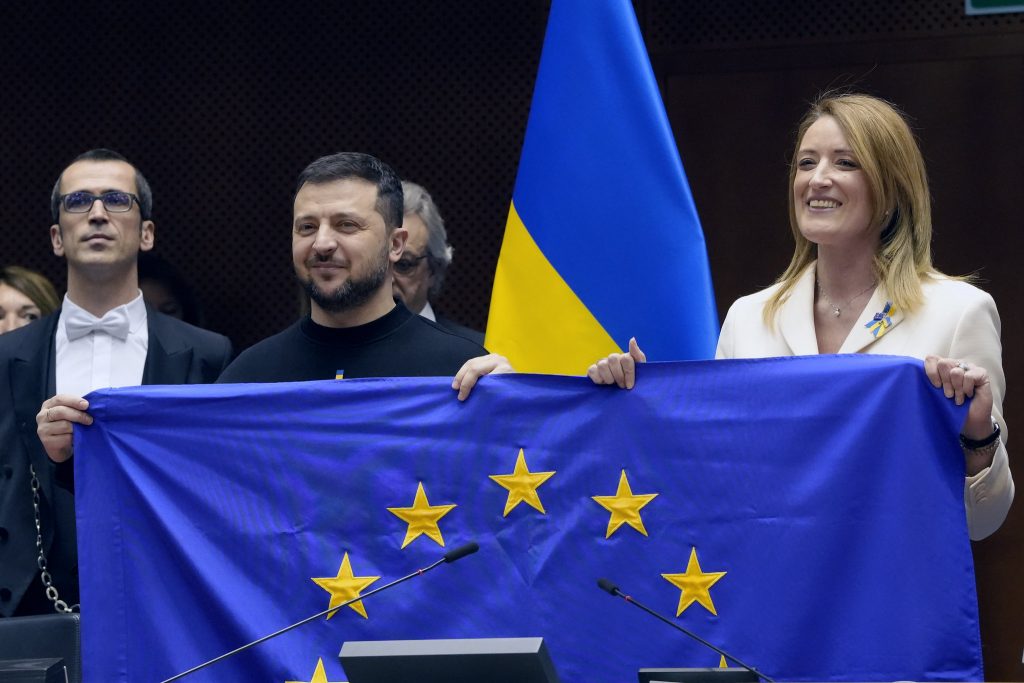
President of Ukraine Volodymyr Zelensky and President of the European Parliament Roberta Metsola on March 19, 2022 (Photo: CC-BY-4.0: © European Union 2023– Source: EP)
However, in order to admit more members (which is only a reality in the five to ten years perspective), the EU will also need to undertake deep internal reforms to ensure its own viability.
For example, the accession of Ukraine, with its 40 million people, will require radical changes to the common agricultural policy or cohesion policy to help lagging regions catch up. The EU has no time to lose and must start preparing for these changes now. Member States must also decide by this year at the latest what to do about internal reforms and what procedure to follow (amending the EU treaties or otherwise).
Pressure Yields Diamonds?
Meanwhile, the EU has to manoeuvre in an increasingly dangerous world, with its own security and economic and political interests in mind.
The consequences of the war in Ukraine and Gaza, of migration linked to armed conflicts and climate change are putting Europe, in particular, under intense political, economic and social pressure.
And it is not impossible that in 2024, a world in turmoil will have to cope with new armed conflicts and natural disasters. The year 2024 will be a big test for the EU, which will have to face many external and internal challenges while at the same time being preoccupied for at least half a year with itself and its institutions.

